Plenary Session 1 – Towards Greater Euro-Mediterranean Regional Integration: Rebalancing the Geopolitical Landscape with Economic Opportunities
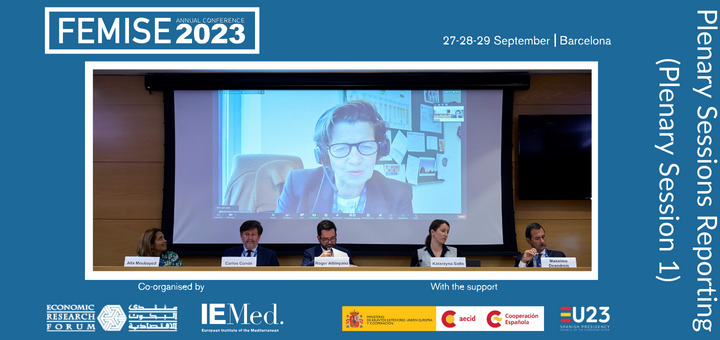
The Mediterranean region is witnessing a new era of changing geopolitical landscape. Given the central role that this region is playing in global trade, economic and social development, it will be key to enhance its integration to secure its place within the global trends while meeting common challenges.
Chair
- Roger Albinyana, Managing Director of the European Institute of the Mediterranean (IEMed),
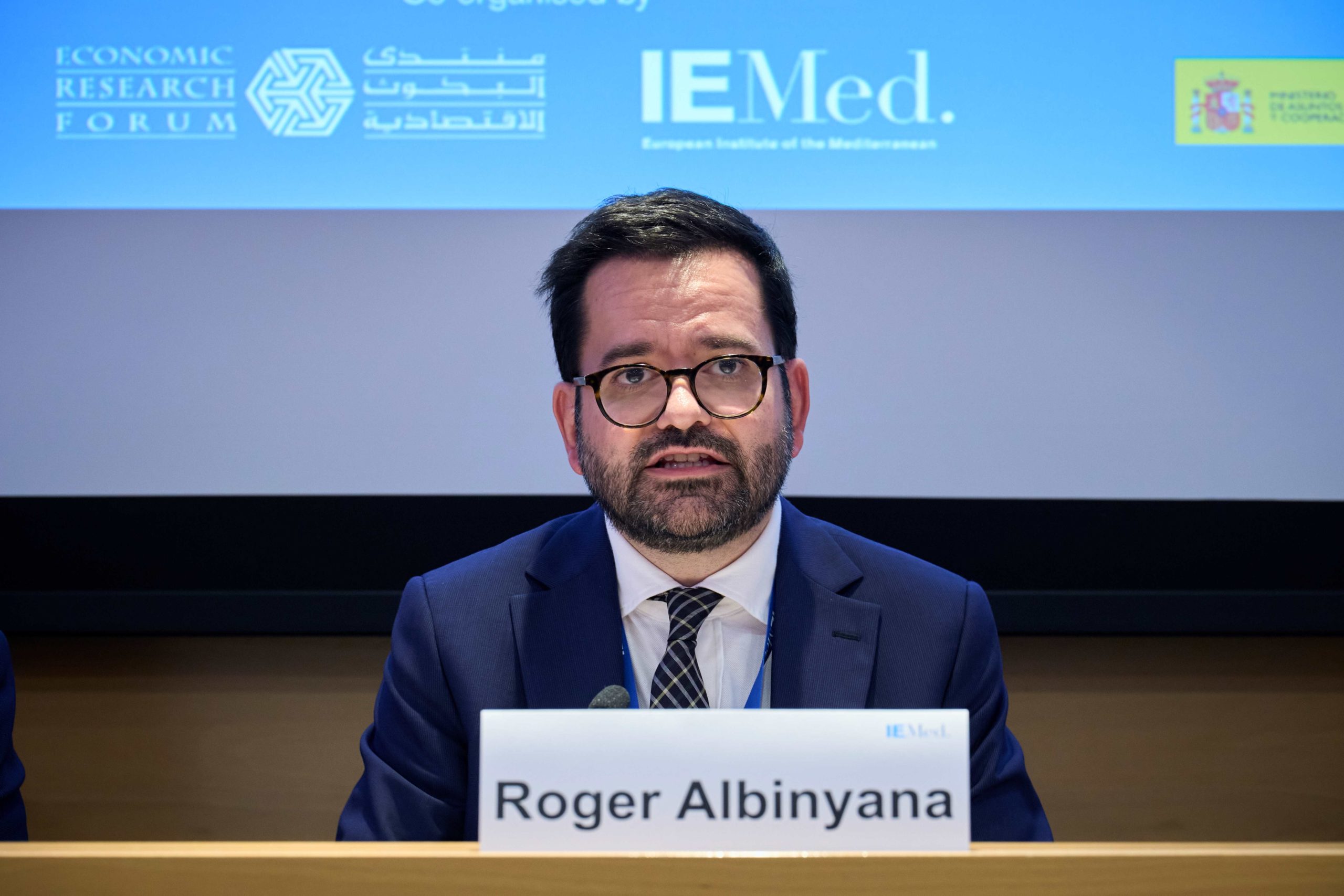 states that the covid 19 pandemic and the effects of Russian aggression against Ukraine (which has accelerated multipolarity in a highly fragmented landscape both between countries but also within countries) coupled with the climate emergency have accumulated to a number of persistent challenges that existed before 2019. Even more worrying, we have also witnessed in recent years a social and economic collapse in some countries which is very difficult to redress and combat to counter the lack of appetite for reforms. We need to talk about a positive agenda for the Mediterranean and look at the possibilities of this untapped potential
states that the covid 19 pandemic and the effects of Russian aggression against Ukraine (which has accelerated multipolarity in a highly fragmented landscape both between countries but also within countries) coupled with the climate emergency have accumulated to a number of persistent challenges that existed before 2019. Even more worrying, we have also witnessed in recent years a social and economic collapse in some countries which is very difficult to redress and combat to counter the lack of appetite for reforms. We need to talk about a positive agenda for the Mediterranean and look at the possibilities of this untapped potential
Speakers
- Birgit Loeser,Head of Division MENA, Regional Affairs at the European External Action Service (EEAS) states that there is a clear momentum to reflect on the Southern partnership, based on the agenda of the Mediterranean adopted in 2021.
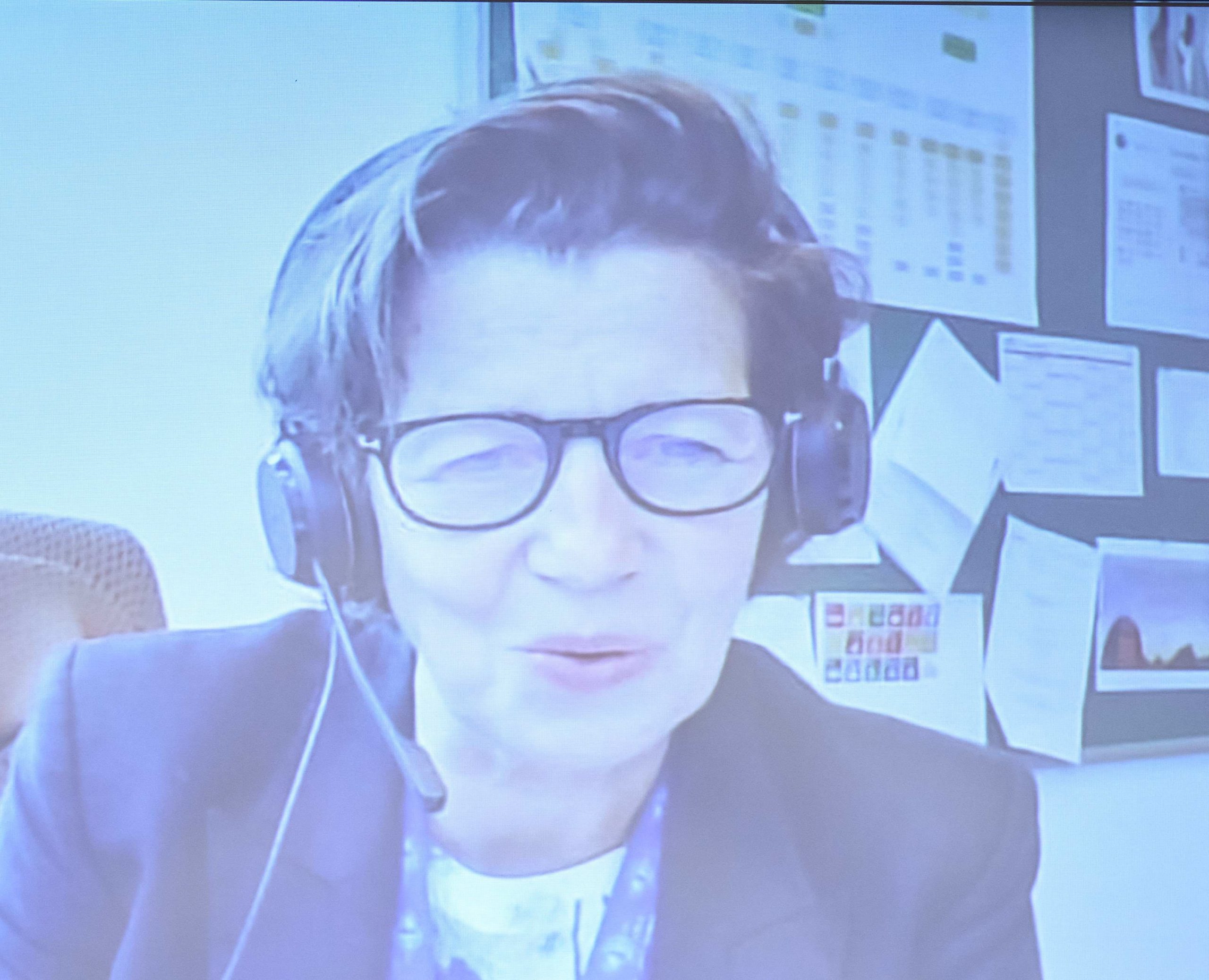 Increased complexity is observed in terms of regional dynamics within the region. New alliances have been formed to which we must adapt. In terms of interconnection beyond the Mena region, we face the consequences of Russian aggression against Ukraine. There is a misperception due to the persistence of narratives in the region targeting the Mediterranean Partnership and we have a responsibility to detect from the outside such disinformation that seeks to divide. It is important to strengthen the partnership with the southern neighborhood and reinforce regional cooperation within the neighboring region, but also linking with sub-regional and cross-regional cooperation with both sub-Saharan Africa and the Gulf. It is also necessary to strengthen the role of the EU in solving conflicts. The EU has financial assistance measures to attract investments and mechanisms to facilitate the exchange of knowledge and expertise. It is essential to keep the private sector in place to help create jobs and give a future to young people in the region.
Increased complexity is observed in terms of regional dynamics within the region. New alliances have been formed to which we must adapt. In terms of interconnection beyond the Mena region, we face the consequences of Russian aggression against Ukraine. There is a misperception due to the persistence of narratives in the region targeting the Mediterranean Partnership and we have a responsibility to detect from the outside such disinformation that seeks to divide. It is important to strengthen the partnership with the southern neighborhood and reinforce regional cooperation within the neighboring region, but also linking with sub-regional and cross-regional cooperation with both sub-Saharan Africa and the Gulf. It is also necessary to strengthen the role of the EU in solving conflicts. The EU has financial assistance measures to attract investments and mechanisms to facilitate the exchange of knowledge and expertise. It is essential to keep the private sector in place to help create jobs and give a future to young people in the region.
- Alia Moubayed, Founder, Association of Women Economists Across the. Middle East & North Africa (AWEAMENA), states that the covid pandemic and the war in Ukraine have exacerbated existing macroeconomic vulnerabilities that were at the forefront of the socio-economic problems leading to the Arab Spring in 2011. The multilateral solidarity that the South Mediterranean countries need to face these macroeconomic challenges is waning.
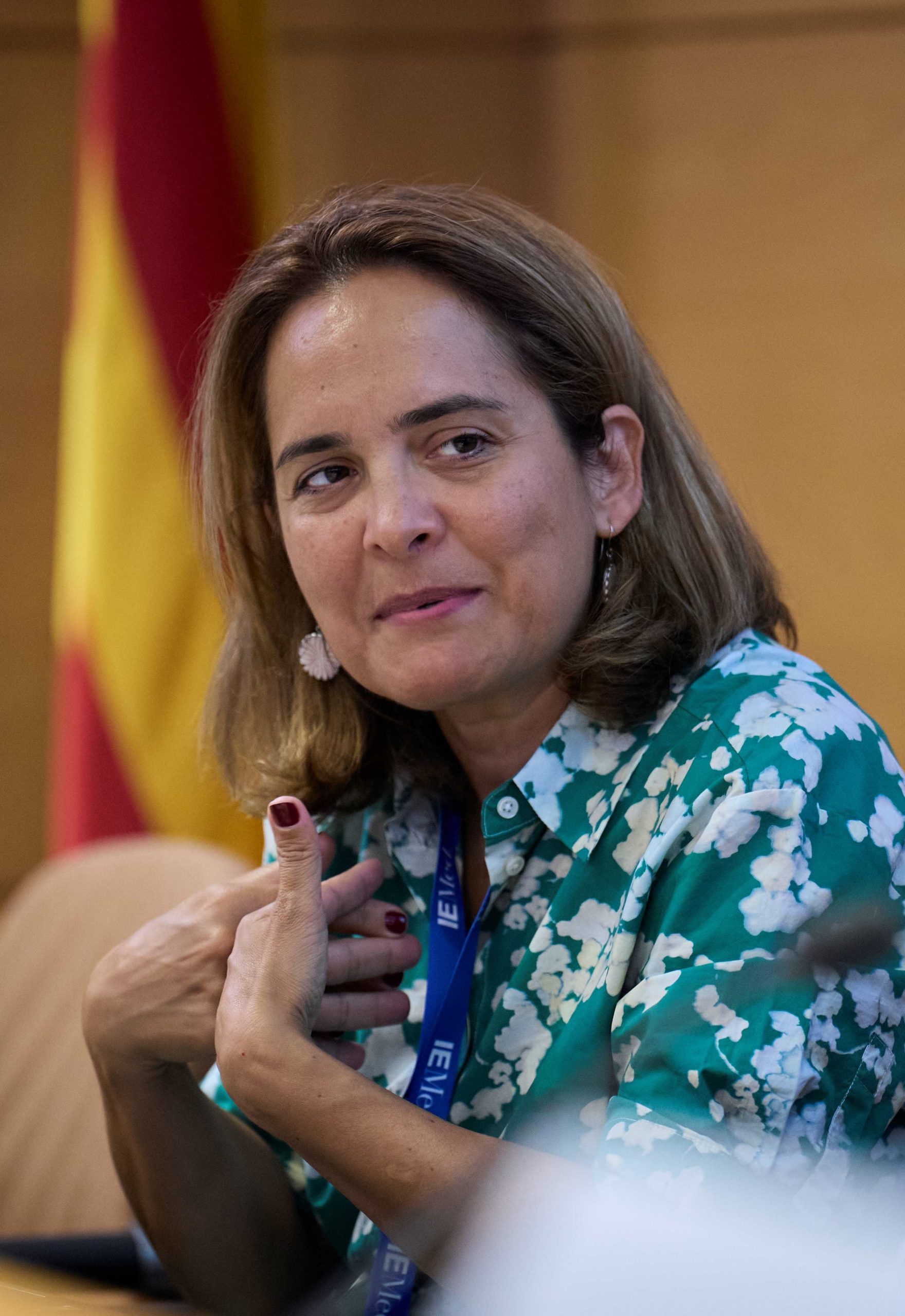 The region is affected by the changing priorities of the region’s main donors. The GCC aid paradigm, which has become a much larger donor in recent years since the Arab Spring, particularly in supporting countries like Egypt, is increasingly tied to geoeconomic interests. The perception of SMCs is shaped by new emerging alliances within the region and outside the region. We should, when thinking about further integration, build on these two key issues of “constructive engagement”: food security and energy security. It is necessary to rethink the modalities of international cooperation to support the economic fragility of the region, thus achieving greater financial stability. Structural reform is needed to open up opportunities for the private sector requiring EU financial assistance. Also, it is important to invest in climate resilience which clearly threatens future stability at both macroeconomic and social levels.
The region is affected by the changing priorities of the region’s main donors. The GCC aid paradigm, which has become a much larger donor in recent years since the Arab Spring, particularly in supporting countries like Egypt, is increasingly tied to geoeconomic interests. The perception of SMCs is shaped by new emerging alliances within the region and outside the region. We should, when thinking about further integration, build on these two key issues of “constructive engagement”: food security and energy security. It is necessary to rethink the modalities of international cooperation to support the economic fragility of the region, thus achieving greater financial stability. Structural reform is needed to open up opportunities for the private sector requiring EU financial assistance. Also, it is important to invest in climate resilience which clearly threatens future stability at both macroeconomic and social levels.
- Massimo Deandreis, Director general, S.R.M., Grupo Intesa Sanpaolo, states that the maritime perspective is important for the global economy and the Mediterranean as 90% of the global trade is carried out by Maritime mode. The Mediterranean is benefiting from regionalization: container traffic annual growth rate forecast 2022-2027 is +3.5% (world average is +2.8%).
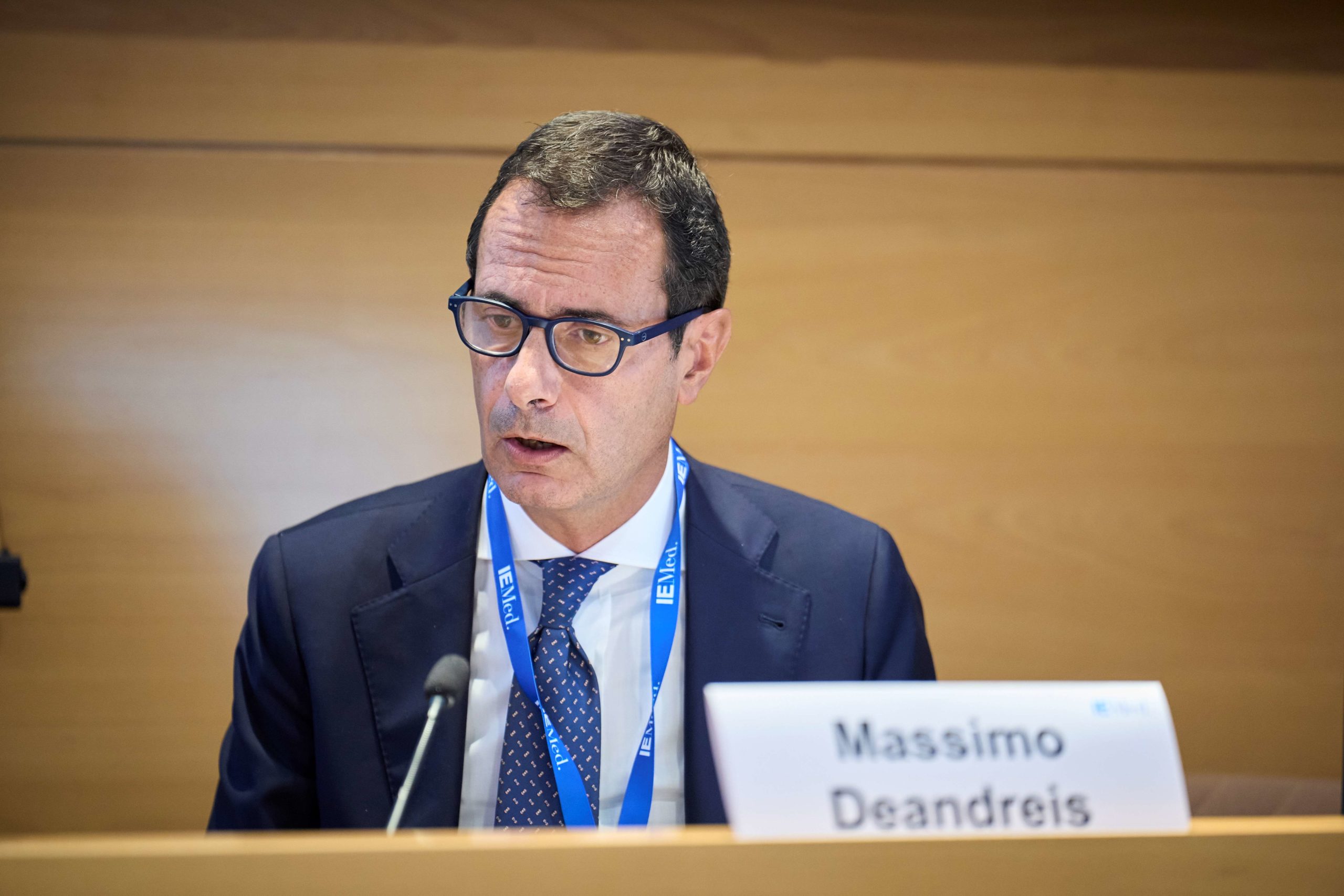 As he points out, some industrial sectors are reorganizing into shorter chains with new opportunities for North Africa and the Adriatic Balkans. Clearly, the Energy sector is crucial for EU targets and for Euro-Mediterranean economic and political relations. Mr. Massimo states that ports are the meeting points of all economic and geopolitical factors, thus increasing their roles as boosters of development and strategic energy asserts. Mediterranean ports, according to him, are growing in efficiency. They are not only logistics nodes but also strategic digital and energy hubs.
As he points out, some industrial sectors are reorganizing into shorter chains with new opportunities for North Africa and the Adriatic Balkans. Clearly, the Energy sector is crucial for EU targets and for Euro-Mediterranean economic and political relations. Mr. Massimo states that ports are the meeting points of all economic and geopolitical factors, thus increasing their roles as boosters of development and strategic energy asserts. Mediterranean ports, according to him, are growing in efficiency. They are not only logistics nodes but also strategic digital and energy hubs.
- Carlos Conde, Head of the Middle East and Africa Division, OECD Global Relations Secretariat, states that the geographical location and the advantages of the trade taking place in the Mediterranean provide significant economic opportunities, in particular through this way of functioning of the global economy and the better positioning in global value chains. As Dr Carlos points out, trade integration is limited to a large extent due to insufficient diversification of the economy. It is essential to take advantage of and adapt to the digital economy.
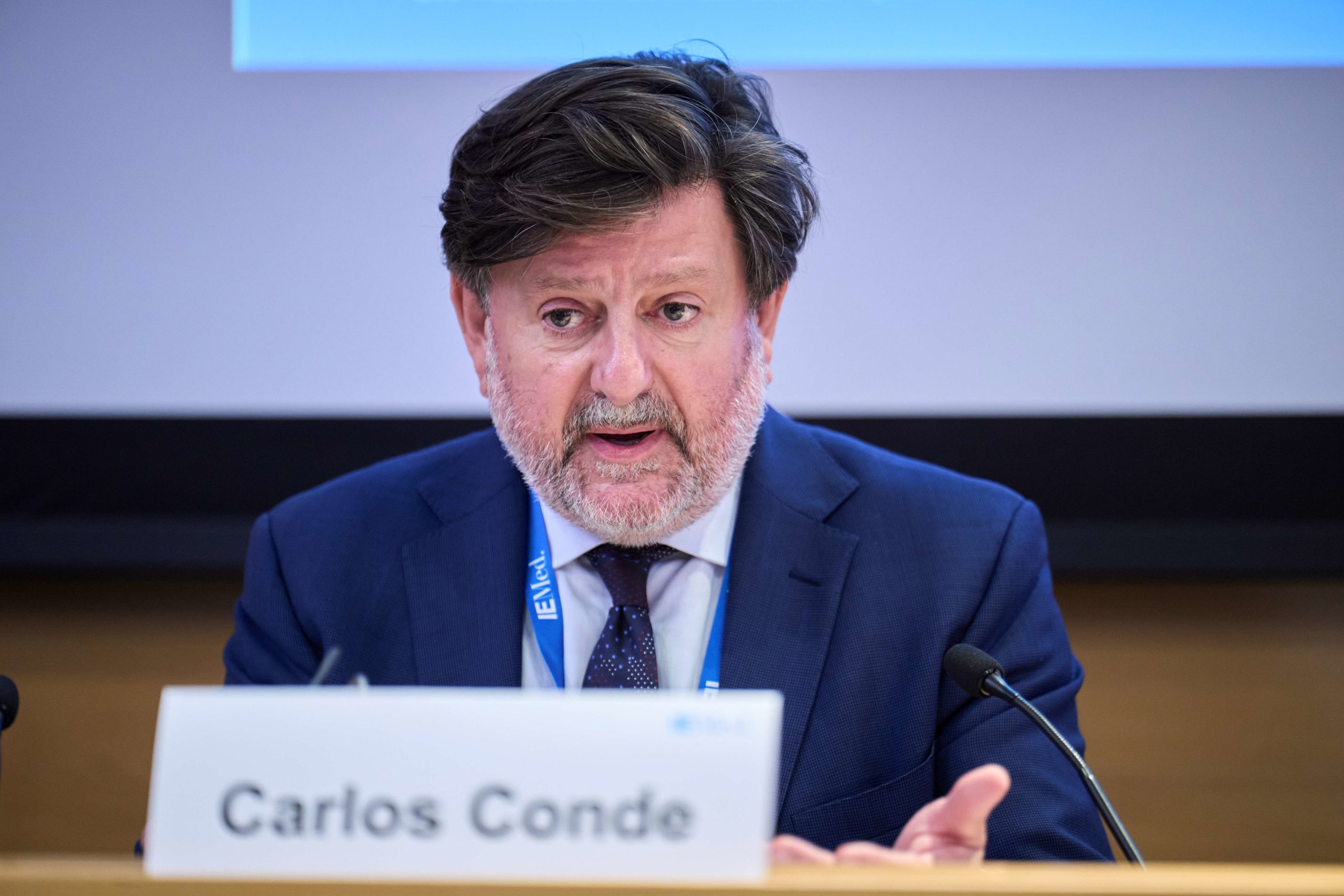 Dr. Carlos states that FDI-related activities generally create more quality jobs, including for women, while generally being more respectful of environmental considerations. Technology transfer can have positive impacts on the local economy. It is also important to organize better systems between national and regional research and innovation networks which are increasingly linked to the localization of industries and the provision of skills to new activities. Geopolitics changes but also perceptions about positioning in the world change. Integration in the Mediterranean requires shaping the political agenda in order to build narratives that can move in this direction.
Dr. Carlos states that FDI-related activities generally create more quality jobs, including for women, while generally being more respectful of environmental considerations. Technology transfer can have positive impacts on the local economy. It is also important to organize better systems between national and regional research and innovation networks which are increasingly linked to the localization of industries and the provision of skills to new activities. Geopolitics changes but also perceptions about positioning in the world change. Integration in the Mediterranean requires shaping the political agenda in order to build narratives that can move in this direction.
- Katarzyna Sidło, Director of the Middle East and North Africa Department, CASE, stresses on the importance for the EU to change the way it plans and programs its policies which must focus more on sustainability for the future.
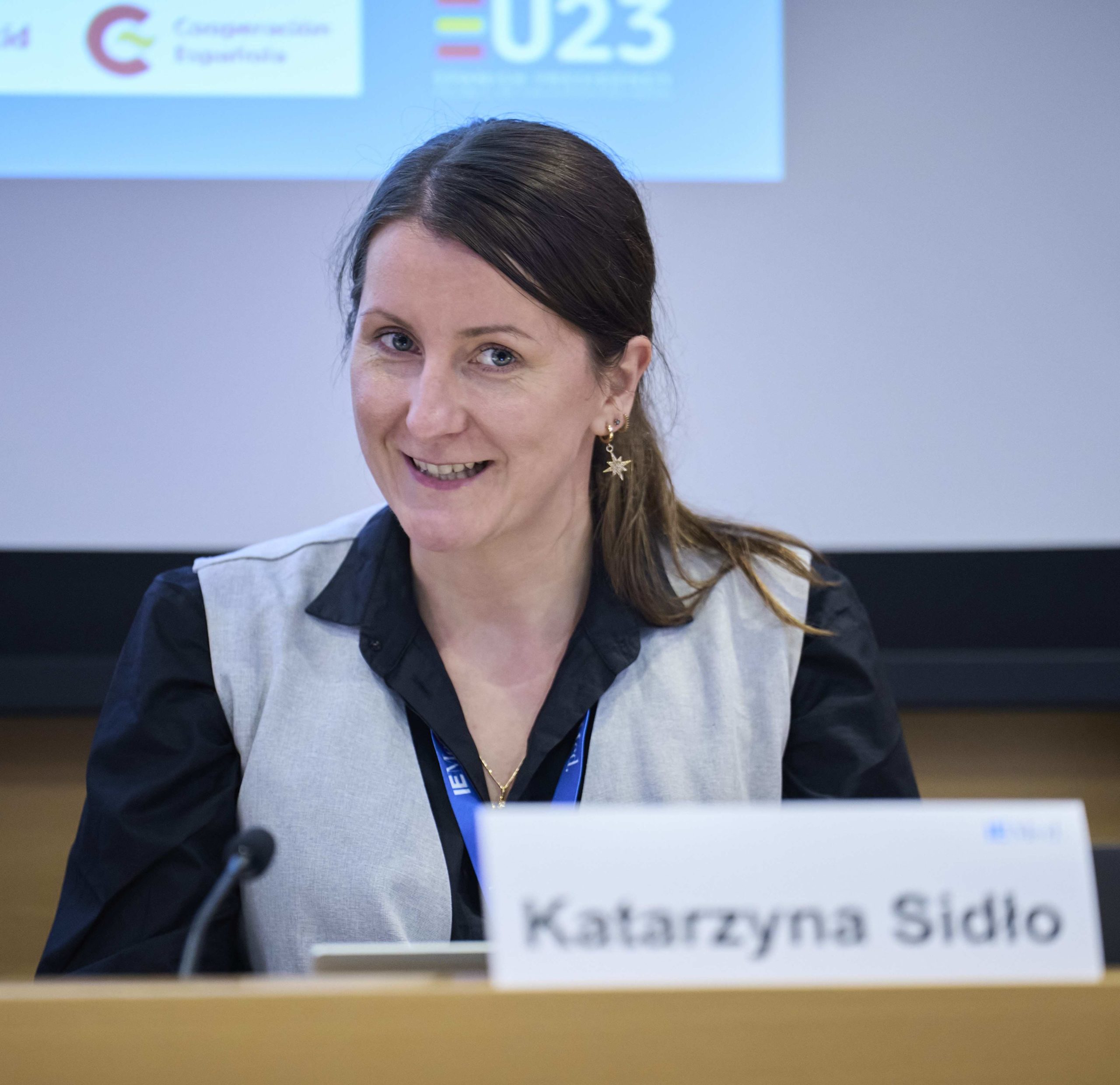 Corruption is one of the main factors hindering long-term sustainable socio-economic development. The EU should assess whether funds allocated to climate-related actions in countries in the region are sufficient and perhaps consider compensating them for some potential losses and disadvantages. Appropriate investment on a bigger scale in the region can only happen if the environment to conduct business is improved.
Corruption is one of the main factors hindering long-term sustainable socio-economic development. The EU should assess whether funds allocated to climate-related actions in countries in the region are sufficient and perhaps consider compensating them for some potential losses and disadvantages. Appropriate investment on a bigger scale in the region can only happen if the environment to conduct business is improved.
Watch the full session :


